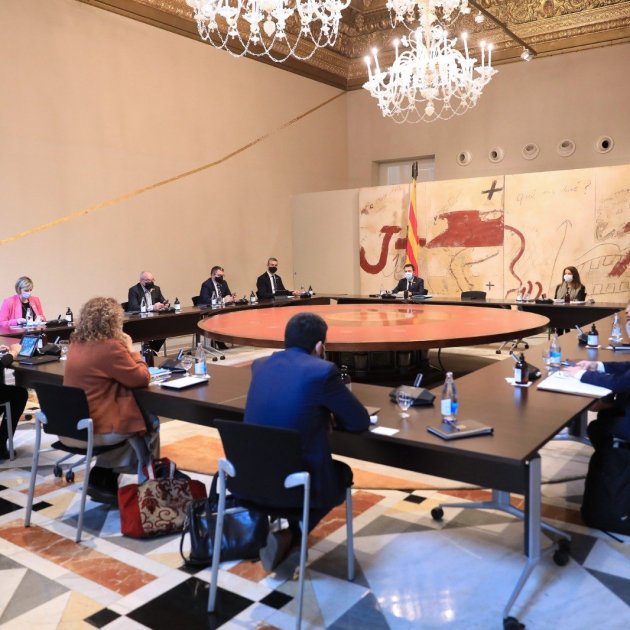Catalan government minister Meritxell Budó has guaranteed that the results of the parliamentary elections which Catalonia is holding amidst the third wave of the coronavirus this Sunday February 14th will be released to the public on election night. As the Catalan administration's logistical preparations for the elections have continued this week, doubts were raised about whether the normal election-night public vote scrutiny would still go ahead in a scenario in which many polling places might be unable to open due to lack of staff. However, with all the electoral processes data now on the table, the executive estimates that 99% of the voting tables will be constituted and, therefore, it will be possible to publish the results.
Budó explained that despite the "concern and unease" about the election date, the Catalan government is planning the elections with all the "democratic and health guarantees". "We have made sure that all people - voters, voting table staff and other workers involved - will be safe. I appeal for calm about this, because all protocols and safety will be guaranteed. No one should fail to vote out of fear that doing so will not be safe,” she explained.
Looking at the specific numbers, the Catalan health ministry estimates that on election day this Sunday there will be between 70,000 and 80,000 people in Catalonia either infected with Covid or in quarantine due to possible contact with the virus. However, the health authorities have assured that all polling places will have a thorough protocol in force to ensure compliance with all measures. This includes measures to enable those infected to cast a vote, in the last hour that the polls are open, from 7 to 8pm.
Polling station measures. Hover mouse over graphic to see details (in Catalan)
Among the measures in place are differentiated time zones for voting. When the polls open at 9am in Sunday, the first three hours of voting are designated for people in high risk groups. After 12 midday, the general population is called to the polls, with one group excepted: those who have tested positive to the virus. They are called to vote from 7 to 8pm, when polling staff will be equipped in full personal protective gear. All of these time zones are recommendations only - legally, anyone with the right to vote can go to their designated voting centre anytime between 9am and 8pm.
Logistical challenges
In Catalonia and throughout the Spanish state, the voting table staff - who check off the names of voters as each person deposits their envelope in the ballot box - are selected at random from the electoral roll to act as polling station officers for the day, as a paid civic duty. Due to the coronavirus, over 25% of the 82,000 people selected for this duty in these 2021 elections requested to be excused from the task. However, the 82,000 total includes three names for every position to be covered, and after changing the system for allocation of such staff - so that substitutes not required at one voting centre may be required to travel to a different centre, the electoral authorities affirm that this problem will not threaten the holding of the elections.
A total of 14,200 agents of the Mossos d'Esquadra and Catalan local police will be deployed on 14th February in the 2,769 polling stations, in the largest-ever security operation for an election in Catalonia, in which for the first time there will be two police officers stationed all day at every polling station.
The February 14th date for the Catalan elections was set in October last year and at that time the Catalan government began planning to hold the vote safely given the near-certainty that Covid-19 would affect it to some extent. On January 15th, based on the latest health data, the final decision on whether to go ahead with the elections was made by the Catalan government in consultation with the major political parties, and it was decided to postpone the vote until May 30th. However, this decision was appealed to the courts, and on January 21st the Catalan High Court gave a provisional ruling that the election was to go ahead on the original February14th date. The court's final ruling on the question arrived on January 29th - the day the election campaign started.
Main image: Catalan government cabinet, meeting this Tuesday / Govern
